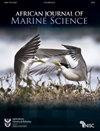The road towards effective governance and management of marine protected areas in South Africa: evolving policies, paradigms and processes
IF 1.4
4区 生物学
Q3 MARINE & FRESHWATER BIOLOGY
引用次数: 1
Abstract
The efficacy of marine protected areas (MPAs) depends on their governance and management. We review their history in South Africa and recognise four periods. Period 1 (1964–1994) provided initial protection but was based on exclusionary, preservationist policies, was ad hoc in the absence of a national plan, and neglected social considerations. Period 2 (1994–2010) began introducing people-oriented policies, focused on ecosystems rather than species, and was strengthened by the formation of a national coordinating body. Period 3 (2010–2019) heralded improvements in design, ecosystem representation and stakeholder engagement, yet fractured governance hindered coordination and management. Period 4 (Since 2019) added challenges in managing new offshore MPAs. Progress in achieving effective MPA governance and management was assessed over these periods for 17 components of governance and management, representing key issues for which changes could be identified throughout. Fifteen components indicated overall improvements—most notably legislation and policies, MPA establishment, planning and design, and staff training and skills—whereas progress for most of the other components was weaker. Zero net gains were recorded for enforcement and compliance, and for the staff complement. Our recommendations flow principally from components assessed as faring poorly. We conclude with eight critical needs: (1) specify detailed objectives for every MPA; (2) fast-track management plans for new MPAs; (3) improve law enforcement and compliance; (4) enhance participation of adjacent communities and other stakeholders; (5) address MPA-related social impacts and injustices, and improve benefit sharing; (6) ensure financial sustainability; (7) strengthen evaluations of management effectiveness; and (8) improve cooperation between government authorities responsible for MPAs and fisheries.南非海洋保护区的有效治理和管理之路:不断演变的政策、模式和进程
海洋保护区的效力取决于其治理和管理。我们回顾了他们在南非的历史,并承认了四个时期。第一阶段(1964年至1994年)提供了初步保护,但基于排斥性、保护主义政策,在没有国家计划的情况下是临时性的,并忽视了社会考虑。第二阶段(1994-2010年)开始推行以人为本的政策,重点关注生态系统而非物种,并通过成立国家协调机构得到加强。第三阶段(2010-2019)预示着设计、生态系统代表性和利益相关者参与度的改善,但治理的断裂阻碍了协调和管理。第4期(自2019年以来)增加了管理新的海上海洋保护区的挑战。在这段时间里,对治理和管理的17个组成部分在实现有效的MPA治理和管理方面的进展进行了评估,这些都是可以在整个过程中确定变化的关键问题。15个组成部分表明总体有所改善,其中最显著的是立法和政策、MPA的建立、规划和设计以及员工培训和技能,而其他大部分组成部分的进展较弱。执法和合规以及工作人员编制的净收益为零。我们的建议主要来自被评估为进展不佳的组件。我们总结了八个关键需求:(1)为每个MPA指定详细的目标;(2) 新MPA的快速通道管理计划;(3) 改进执法和合规性;(4) 加强邻近社区和其他利益攸关方的参与;(5) 解决MPA相关的社会影响和不公正现象,改善利益共享;(6) 确保财务可持续性;(7) 加强对管理有效性的评价;以及(8)改善负责海洋保护区和渔业的政府当局之间的合作。
本文章由计算机程序翻译,如有差异,请以英文原文为准。
求助全文
约1分钟内获得全文
求助全文
来源期刊

African Journal of Marine Science
生物-海洋与淡水生物学
CiteScore
2.60
自引率
16.70%
发文量
17
审稿时长
6-12 weeks
期刊介绍:
The African (formerly South African) Journal of Marine Science provides an international forum for the publication of original scientific contributions or critical reviews, involving oceanic, shelf or estuarine waters, inclusive of oceanography, studies of organisms and their habitats, and aquaculture. Papers on the conservation and management of living resources, relevant social science and governance, or new techniques, are all welcomed, as are those that integrate different disciplines. Priority will be given to rigorous, question-driven research, rather than descriptive research. Contributions from African waters, including the Southern Ocean, are particularly encouraged, although not to the exclusion of those from elsewhere that have relevance to the African context. Submissions may take the form of a paper or a short communication. The journal aims to achieve a balanced representation of subject areas but also publishes proceedings of symposia in dedicated issues, as well as guest-edited suites on thematic topics in regular issues.
 求助内容:
求助内容: 应助结果提醒方式:
应助结果提醒方式:


